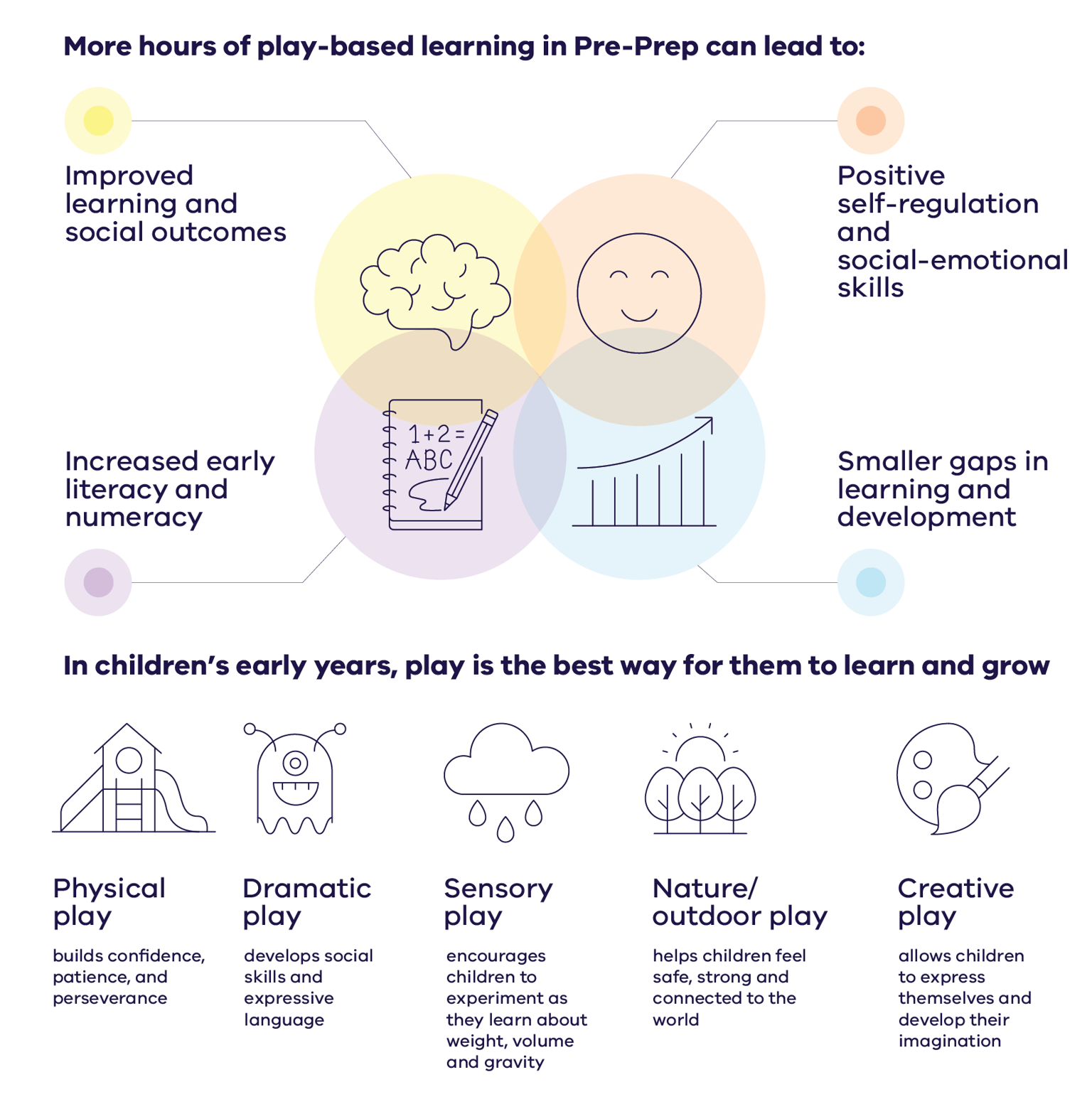Overview
Having a strong vision and clear rationale for change can help you communicate about change.
Effective change leaders explain the purpose and need for change, before working with their team to create shared understanding of the changes.
When your team understands the ‘why’, it can provide them with direction, motivation, and greater purpose, and make change - the ‘how’ - easier to work through.
Benefits for children
Children’s earliest experiences in life establish the foundations for their future. A 2-year early learning program, including more hours in the year before school, is supported by evidence from Australia and around the world. Studies show children who attend kindergarten for 2 years have better development in language, pre-reading, early number concepts, independence, concentration, and social skills when they start school.
The value of more hours in the year before school
Four-Year-Old Kindergarten will gradually transition to Pre-Prep, which will continue to be a play-based program led by a qualified teacher. By full roll-out, children in all locations across Victoria will have access to 30 hours of Pre-Prep.
- The additional hours of Pre-Prep mean even greater access to the many benefits of early childhood education.
- Increased hours in the year before school gives more time for children of all backgrounds and abilities to deepen their learning and development.
- Teachers and educators can provide more deliberate play experiences, which will give children opportunities to embed their learning.
As you prepare to implement the reforms, you may want to provide information to your staff and families in your kindergarten community about the evidence showing the benefits to children of 2 years of high-quality early learning and more hours in the year before school.
Sector insight - The value of play-based learning
A parent of 3 children, whose middle child participated in the first year of Three-Year-Old Kindergarten at Fish Creek Kindergarten in 2020, said 2 years of kindergarten helped her child with confidence, to build social skills, and a readiness to learn.
Another parent of a child who attended Marrang Kindergarten in Stawell, who is also a primary school teacher, noted that kinder supports children with social skills and provides the tools and confidence to ask for help.
Another parent whose child attended Marrang Kindergarten and was initially anxious at the start of a day before being able to comfortably separate, said her son’s favourite part of kinder was making friends.
One parent also encouraged other families to see that while kinder can help set children up for their future, there are lots of opportunities for children to enjoy themselves, because “learning through play is what kinder is all about.”
Motivating change
Achieving the vision you have for your service will depend on the team effort and commitment of your staff. Having a clear sense of the outcomes you want to achieve will provide a strong motive for change.
At the same time, pay attention to what matters most to individual staff and how these personal motivations relate to the shared focus and desired outcomes of your service.
Consider finding time for your team to meet and share views on what drives them in the delivery of quality kindergarten programs, and discuss ‘what works’ at your service, especially in relation to how changes are made. This can help you support individuals within the team to achieve their professional motivations as part of the change process.
For example, the reforms may present opportunities for new roles and responsibilities at your service. Your team may also identify training and development opportunities to support the change process, which can motivate and help people to embrace change.
Resources
Updated

